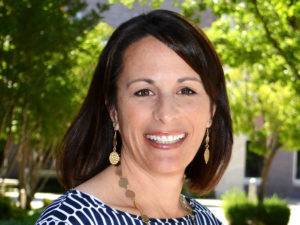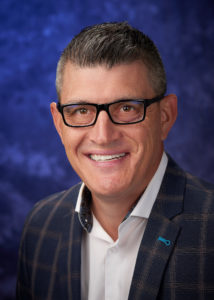This article originally appeared in Comstock’s Magazine.
While economic activity in California has slowed down over the last two months with the coronavirus pandemic grinding society to a halt, construction is one industry that has continued through shelter-in-place orders, as government officials deemed it an essential business.
The construction industry accounts for 3.8 percent of California’s gross domestic product, according to the Greater Sacramento Economic Council. Some of the major construction projects planned in the local region, according to GSEC, include the $4 billion Upper Westside master-planned development near Sacramento International Airport, $1 billion Riverpark subdivision in West Sacramento, $750 million Kaiser Permanente Hospital at The Railyards infill development in Sacramento and $499 million Judicial Council of California courthouse in Sacramento.
Comstock’s recently spoke with Wendy Cohen, vice president of operations for Kitchell, a construction firm with several projects underway in Sacramento’s central core. Those projects include the renovation of the Community Center Theater, the Sacramento Commons housing project and the Department of General Services Clifford L. Allenby Project.
You said 95 percent of your clients are in the public sector?
Yeah. We’ve been very fortunate, candidly, that all — or most, we’ve had a few projects slow down — have been deemed essential across the state. Most of our work is moving forward or actively in construction.
When Comstock’s toured the Community Center Theater last September, the theater was all dirt on the inside and it had been pretty much gutted. What kind of progress has Kitchell made since then?
The project’s scheduled to be complete at the end of the year. We’re in the process of … doing all the extensions. If you know the building well, that front entry area, that is all being expanded significantly. If you swing by or drive by, you’ll notice that the old part of the building that (led) into the building has kind of been expanded outward, that main lobby and the entrance area. You’ll start to see that expansion for sure.
A lot of the underground utility work that took place is complete. We did a ton of work under the stage area where the orchestra is, as well as under the seating area. All of that area has been redone. And then we had to do a bunch of utility work on the outside.
So now we’re starting to, frankly, put all of the pieces back together. Over the summer, we’ll move to start closing up the building and then start doing the interior part, the finishes … and then wrapping up the exterior part of the building, and last but not least will be all of the landscape and the sidewalks and all of those items.
Aside from current projects, are requests for proposals at normal levels from public agencies?
They’ve definitely slowed down. We’re still seeing them come out, but they’ve slowed a little bit, as you would expect.
I think a lot of our clients — state agencies are our clients, community colleges, K-12 (schools), municipalities — a lot of them are really busy themselves dealing with the reality of COVID and how to run their own businesses and prepare for students to come back or to run a city. I think in some cases, it’s just been a distraction, and so things haven’t moved as quickly as we would expect.
What we’re really looking at right now is what does this look like long-term? What does this look like for the state budget and the capital projects that are funded through the state budget? What does this look like at (the) county level and budgets?
It’s likely they’re going to run a really big revenue deficit when they start looking at the income, or the revenues that (dropped) the first quarter of this year because of COVID.
What does it mean for Kitchell if we start to see California jurisdictions cutting capital expenditure budgets?
Initially, not a lot. It would really start to play out (in) 12-18 months. … Our lessons learned from 2008-2009 tell us that likely projects get put on the shelf if (agencies are) trying to figure out (how) to provide regular services for their citizens or build a project. …
At the same time, (as) we also saw (in) 2008-2009, the outcome of that was some stimulus packages that were passed for public agencies to prepare for shovel-ready projects. So I also think, on the flip side, because construction for the most part has been deemed essential in the state, there may be a push to continue construction to have construction help lead us out of this.
We’re looking at a serious economic situation. How does construction help us get out of it?
It’s a good question. I think that, as I mentioned earlier, (Gov. Gavin Newsom) really (understands) how critical the construction industry is for California. … That was a first step in the right direction.
One of the things to remember is that most of the people that work in the trades and construction are hourly employees. If they don’t work, they don’t feed their families. I think being really mindful of that (is) important. Like many other people in the state, they all have that same challenge.
But I think if we can keep capital projects moving forward and the industry moving forward, it will at least provide that forward momentum for the market and for the economy. And then as the state starts to open up incrementally — whatever that looks like, because it changes on a daily basis — then you would just start to add on top of that.
I think the worst thing that could happen is that we stop construction, frankly, because I think it’s, as I said, it’s one of the industries that has been pushing forward. I think it really just creates the momentum for the economy to open back up, because you already have those folks working and collecting a paycheck, and they do have the ability to provide for their families and ultimately spend their money at the grocery store and other places to keep the economy moving forward.

